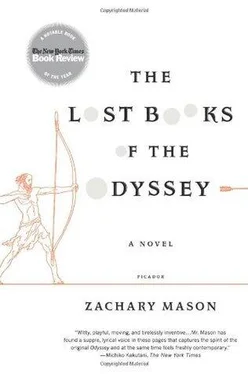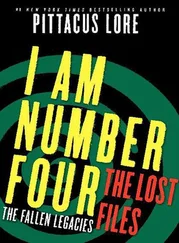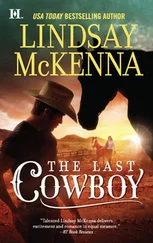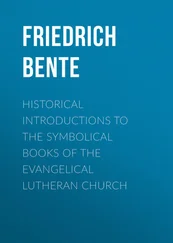I wonder if I am the builder. I do not know how to build houses, but I have forgotten a great deal — perhaps I have forgotten that as well. My hands are callused, but I cannot remember what it would feel like to lift a hammer. This does not mean I never knew. If I had tools I could use them and see if anything came back to me, or if they caused calluses and whether those calluses matched the ones I have now. Of course, I have no tools.
I have many scars, the largest one a long white slash on my thigh. I try to read them, hoping for a memory of some accident or battle, but they are illegible.
I wonder if I am a prisoner and this house is my jail. The door is always unlocked but I have only the one thin shirt — when I go outside the cold drives me back into the cabin within minutes. It would be a strange sort of prison that lasts only for a season, unless winter never ends here. I do not remember it beginning.
I have asked the wolves about these things. They listen with their tongues lolling, giving every appearance of thoughtful attention, but when I am done they trot off into the trees without comment. The hawks turn their bright eyes on me and seem concerned with my plight but they too are silent. I sometimes think the falling snow murmurs to me in a language I cannot quite understand.
The solution to my perplexity comes one morning when I ransack the cabin for what might be the hundredth time and on impulse drag the firewood bin away from the wall. Behind it I find a soot-smudged book coated with wood dust. I set it on the table and slowly rotate it, scrutinizing it from every angle, my breath quickening. Its binding is thick and pebbled and there is no title on the spine. Its pages are cut — someone has read it. I hope it is a diary, or a memoir, or at any rate some kind of an explanation. I open it reverently and read.
By dusk I have read the book through. It is the story of Odysseus, soldier and diplomat, a man of versatile intelligence who connived to destroy a sacred city in the East and made the long trip home over many trying years.
I wonder what the book was meant to tell me. The allegorical possibilities are many, and the number of codes it could conceal are infinite, but it could be a simpler, more nearly literal message — perhaps it is, in some small way, my story. I could be the orb-eyed cyclops in his cavern, for like him I am remote from mankind, and for all I know would be angry at visitors, but I have two eyes. I could be Telemachus, who is lost in his own land. I could even be Penelope, a prisoner in my home, courted by the cold wind and winter. Is my house Ithaca Hall? The Phaeacian castle? Are the wolves Scylla, the cold Charybdis?
I re-read the book. Once again it ends with Odysseus allaying Poseidon’s wrath by walking inland with an oar over his shoulder until someone mistakes it for a winnowing fan. The shock of revelation is so great that I go out and stand for a minute in the cold, the sharp wind and harsh light making my eyes water, before coming back in to read the ending again. At last, I know myself. I hug myself with delight at having finally solved the riddle. Modesty had kept me from believing it, or at least from admitting it to myself, but now all is clear. The essential insight is that the text is corrupt, or, if not corrupt, then incomplete, or of a calculated obscurity. Immortal Poseidon’s wrath was implacable — in order for Odysseus to escape from his vengeance once and for all it was necessary that he cease to be Odysseus. What would the cleverest of the Greeks have done in that situation? He would have gone somewhere remote, far away from gods and men and, somehow, forgotten everything, and thereby been himself no more. I can only speculate on how he managed to attain his amnesia. I do not know that I would now have the courage to go through with it — I can see that already much has changed for me. And then, I would be most unwilling to let go of my revelation.
Perhaps he went through each scene of his life and held it fixed in his mind’s eye until it disappeared. Eventually even his most vivid memories (the first time he touched Penelope’s skin, falling overboard and gasping just as a wave broke over his face) would fade to burnt-out after-image. Then, perhaps, he contaminated and diluted the remaining fragments of memory, rearranging them in every possible permutation: Penelope as a vapid giggler with apple-green eyes, Penelope as a heavy immovable woman whose chief pleasure is resentment, Penelope as a young wanton who in middle age comes to cherish respectability above all things. Eventually, memory is subsumed in white noise.
Even this, though, would be not quite enough. There must have been some final discipline that destroyed the last vestiges of self, but, whatever it was, it was so thorough that I lack the capacity even to imagine it.
With relief, I open the stove and feed the book to the flames. It is the last link to who I was, and there is just enough left of me to see it. The book blackens, writhes and disappears. Now every debt is paid, every sin erased and I can begin anew, I who was once Odysseus and now am no one.
I could have lived among light and ambrosia, bright forever-young things coming and going on each other’s arms and the wine and the night inexhaustible. But that world was flat to me, and for all that my father is great among them I wanted no part of it. Even if she had been true (I am not considered handsome, never have been) I think I would have preferred my island, my farm, and my solitude. I have never had the island altogether to myself but I made my neighbors dislike me from the first — from time to time a farm-wife dropped by as in duty bound but I offered no more than politeness required, or a little less, to ensure my privacy. Sometimes in the distance I heard a girl’s sweet singing and I needed no more company.
I lived in a cave as it was easier than a proper house, cool in summer and warm in winter. I tended my goats, made cheeses, split firewood and fished. I fancied myself a philosopher although for the most part my philosophizing consisted of staring out to sea, usually with a fishing pole in my hand, thinking of nothing. The sun would bore into my brain over the hours and drive out everything except a ringing brightness, making everything look hollow or flat.
One day I came home and found my cave full of visitors. They had been regaling themselves on my larder and greeted me with swollen-cheeked, stupidly beaming faces, their lips greasy with my mutton, invoking the formulas of guest friendship and waiting for their welcome. I gave them no welcome but curses and, still sun-struck and sea-addled, hit one of them with my staff. I only meant to scare him but I have always been strong and he fell and knocked his head on the wall with the sound of a stone landing at the bottom of a deep well. They would have taken him and gone (or tried to — my blood was up) but their captain, who had a face full of guile, begged my pardon, apologized for the intrusion, called me lord and with all humility proffered a skin full of strong wine as a belated host gift. It had been a long time since I had tasted wine and I was a little mollified (not to mention ashamed of myself for overreacting). We sat down to drink, and for the sake of politeness I asked them who they were and where they came from. The captain said his name was Nobody (a strange moniker, I thought at the time, but it would have been unseemly to comment) and that he and his men had sailed from Crete to trade for amber and linen but on their way had found nothing but trouble — pirates of opportunity, perilous storms, comrades washed overboard in the night and their course lost these many months past. Nobody droned on about his adventures and sleep came to me as I sat watching him across the fire. How painful it is that his sly fox face was the last thing I ever saw.
Читать дальше












